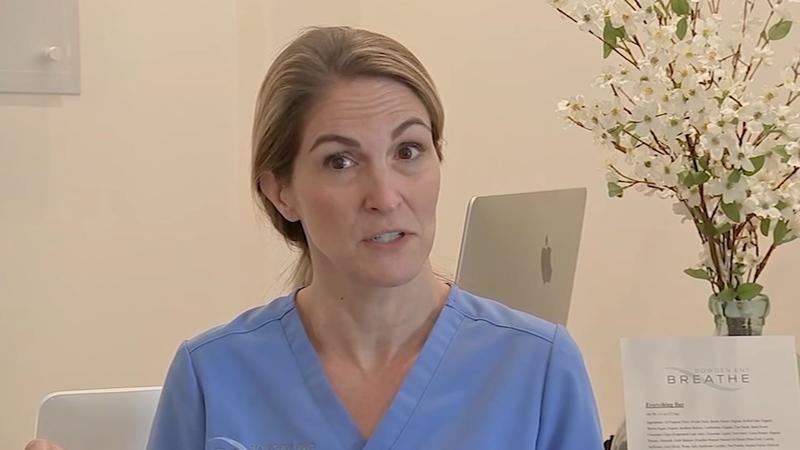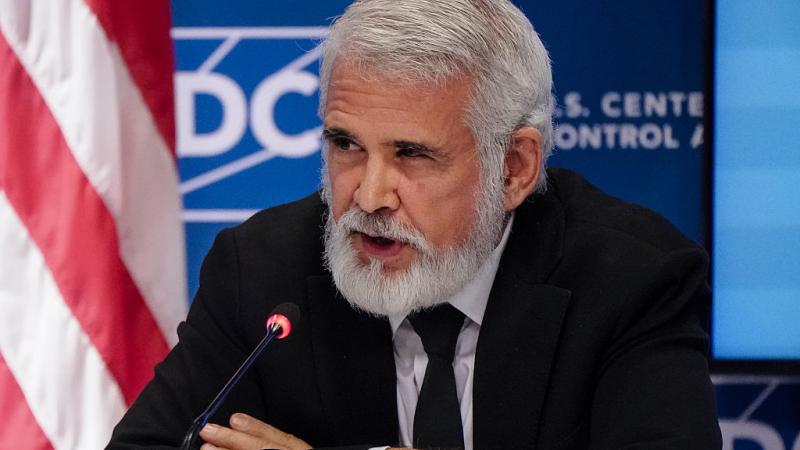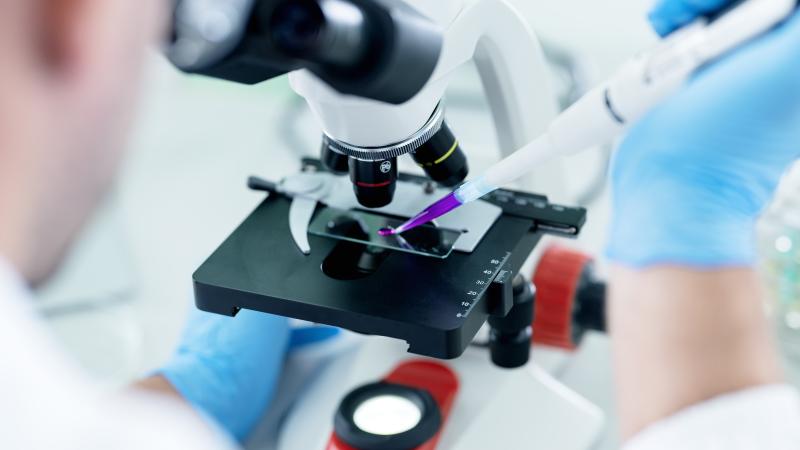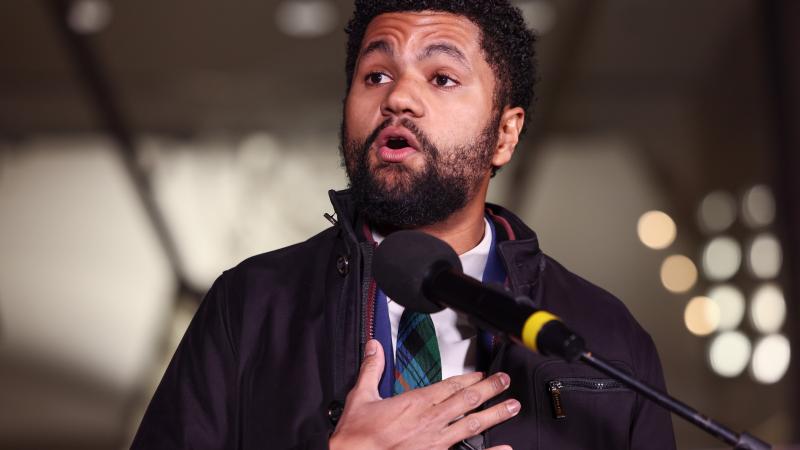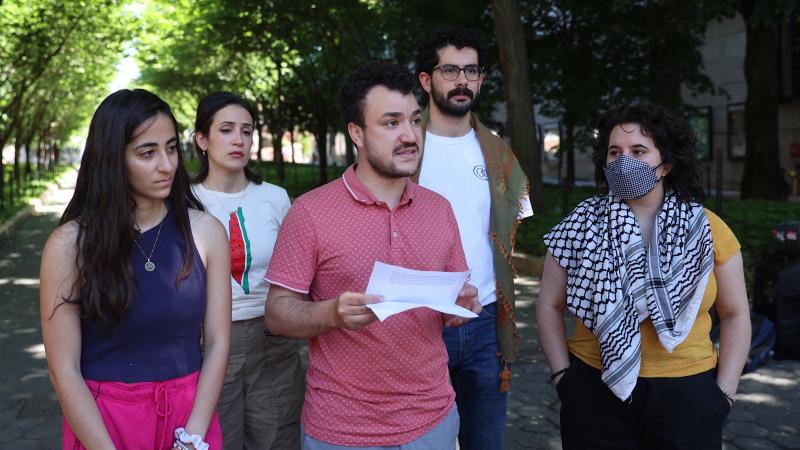Repeat COVID vaccines provoke two kinds of inferior antibodies, study finds
Not just IgG4 antibodies that become predominant in the many-jabbed, but also lesser studied IgG2, researchers find. NIH reportedly prepares for Bhattacharya by marginalizing mRNA research, narrative policing.
As the Trump administration winds down the National Institutes of Health's devotion to increasing COVID-19 vaccine uptake, expanding mRNA technology and policing purported wrongthink, its incoming director – dubbed a "fringe epidemiologist" by a predecessor – will have no shortage of supportive research to call upon.
Spanish scientists documented a second so-called class switch in people with "repeated" mRNA COVID jabs, meaning their bodies start churning out two kinds of antibodies that learn to live with infection rather than destroy it, not just the IgG4 antibodies observed in prior studies.
"IgG4 is primarily involved in regulatory functions, and is associated with immune tolerance and chronic antigen exposure," while IgG2 targets "polysaccharide antigens" and "has received less attention" in the context of weakening immune response to COVID, they wrote this month in the British Infection Association's Journal of Infection.
"Here, we show that higher levels of IgG4 and IgG2, as well as higher proportions of non-cytophilic [nonbinding] to cytophilic antibodies, following booster vaccination, are associated with a heightened risk of SARS-CoV-2 breakthrough infection."
IgG1 and IgG3 antibodies, by contrast, are better at activating immune system reactions to neutralize COVID, though the researchers caution that IgG2 and IgG4 "may also help prevent severe COVID-19 by mitigating inflammation-driven pathology."
German scientists also took a glass-is-half-full approach in a study published earlier this week in the European Molecular Biology Organization's Molecular Systems Biology.
The University of Cologne researchers found that at least two consecutive mRNA jabs "induce a highly dynamic and persistent training of innate immune cells enabling a sustained pro-inflammatory [neutralizing] immune response," but cautioned it's unknown whether they lead to "long-term alterations of innate immune cells with corresponding epigenetic alterations."
Even before Stanford medical professor Jay Bhattacharya's Senate confirmation as director this week, NIH's attitude toward mRNA technology had reportedly turned. Unnamed researchers told Kaiser Family Foundation Health News mid-month that NIH officials were urging them to remove mRNA references from grant applications.
A National Cancer Institute senior official said acting Director Matthew Memoli asked staff to report mRNA grants, contracts or collaborations to the White House and Health and Human Services Secretary Robert F. Kennedy's office – the same thing Memoli did before NIH canceled vaccine hesitancy studies, KFF Health News said.
The morning Bhattacharya was confirmed – he hadn't been sworn in as of late Friday – NIH told staff in an email titled "URGENT" to compile grants and contracts related to “fighting misinformation or disinformation … any form of censorship at all or directing people to believe one idea over another related to health outcomes," STAT News reported.
The email, which asked for responses by noon Wednesday, gave examples such as contracts to promote vaccine uptake and public health messages about the "dangers of Covid or not wearing masks," STAT said, though the medical news organization falsely claimed it was Bhattacharya's "first day" until investigative journalist Paul Thacker fact-checked it.
The Kennedy-founded Children's Health Defense said Thursday its Freedom of Information Act requests revealed which grants and contracts were likely on the chopping block, some of which concerned pushing HPV vaccines on adolescents with resistant parents.
Prompted by NewsNation host Chris Cuomo, Kennedy said Thursday that NIH would continue a Biden administration-created division "devoted to studying long COVID," but also that HHS was "incorporating an agency within" the Centers for Disease Control and Prevention "that is going to specialize in vaccine injuries," which is Kennedy's long-term concern.
The CDC's Advisory Committee on Immunization Practices is meeting in mid-April to review data and vote on recommendations, following an unexplained February postponement. The agency recently added a page to its website on advisers' conflicts of interest.
'The body essentially gets tired of seeing this spike protein'
The Spanish paper, led by Barcelona Institute for Global Health postdoctoral data scientist Carla Martín Pérez, reviewed a "longitudinal subset of primary healthcare workers" from an ongoing cohort recruited from the Barcelona area, with surveys and blood draws through May 2024.
The first group, enrolled in spring 2020, had symptomatic COVID infections, and the second, in spring 2021, completed primary series jabs without prior infection, for a total of nearly 450 HCWs. They were then winnowed to 83 for a "longitudinal class" of thrice-jabbed.
"Elevated IgG4 levels" and higher ratios of nonbinding to binding antibodies, post-booster, showed a 10-fold increase in risk for breakthrough infections, all of which were "mild," the researchers found. "Moreover, an increased non-cytophilic to cytophilic antibody ratio correlated with reduced functionality, including neutralization."
"Never have we had a vaccine where you just keep taking it over and over again, the genetic code for the spike protein" in mRNA inoculations, cardiologist Peter McCullough, also chief scientific officer at The Wellness Company, told Just the News No Noise.
The Spanish paper shows "the body essentially gets tired of seeing this spike protein" and switches to "useless" IgG4 antibodies, McCullough said.
High IgG4 levels are associated with allergies and are unusually high in beekeepers from repeated exposure to bee venom, for example. Former National Institute of Allergy and Infectious Diseases Director Anthony Fauci's staffer co-wrote one of the papers documenting the antibody class switch, which was edited by a Pfizer scientist.
With vaccines "in their iteration of the sixth, seventh and eighth boosters, it looks like they're counterproductive" and flooding the body with spike protein that won't go away "on its own," McCullough said, pointing to a patient who still had the protein 22 months after boosting.
New Yale research, not yet peer-reviewed, also found spike protein in the blood of never-infected study participants as long as nearly two years after inoculation, and concluded that COVID vaccination is responsible for some cases of so-called long COVID – also plausibly caused by wearing higher-quality masks, loneliness and physical inactivity.
Elite American medicine has known about spike protein persistence for at least two years, with Harvard Medical School researchers in 2023 documenting "markedly elevated levels of full-length spike protein" floating freely in the blood of adolescents and young adults hospitalized with post-vaccination myocarditis, but not in healthy controls.
Even earlier Harvard and Yale research from a "National Basketball Association occupational health cohort," partially funded by the CDC, found that boosted individuals fared worse against the Omicron variant than the non-boosted.
Former New York Times drug industry reporter Alex Berenson praised the Spanish researchers' rigor in his newsletter.
"The study’s results are robust because of its length, the variety of data the researchers collected, the fact that healthcare workers are generally conscientious about tracking and reporting infections, and its size," he wrote. "Even after excluding recipients who had failed to get a booster or missed visits, the researchers had almost 200 people to track."
The research suggests the class switch comes "mostly in response to prolonged and repeated antigen exposure, as a way to tamp down the immune response," Berenson said.
The Facts Inside Our Reporter's Notebook
Videos
Links
- dubbed a "fringe epidemiologist" by a predecessor
- IgG4 antibodies observed in prior studies
- Journal of Infection
- Molecular Systems Biology
- Kaiser Family Foundation Health News
- STAT News
- "first day"
- investigative journalist Paul Thacker fact-checked
- Children's Health Defense said
- Kennedy said Thursday
- Advisory Committee on Immunization Practices
- advisors' conflicts of interest.
- Carla MartÃn Pérez
- Just the News No Noise
- High IgG4 levels are associated with allergies
- Anthony Fauci's staffer co-wrote one of the papers
- New Yale research, not yet peer-reviewed, also found
- wearing higher-quality masks
- loneliness and physical inactivity
- Harvard Medical School researchers in 2023
- Even earlier Harvard and Yale research
- boosted individuals fared worse
- his newsletter
